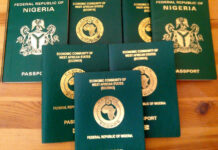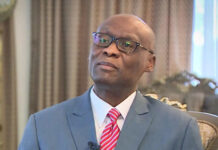By Imam Murtadha Gusau
In the Name of Allah, the Beneficent, the Merciful
All praise is due to Allah, the Lord of the Worlds. In His hand lies the hearts of all the Creation. He controls them with His Acquaintance and Wisdom and is Able to turn them as He wills. I bear witness that there is no deity save Allah, having no associates. I also bear witness that our Master and beloved Prophet Muhammad is the Servant of Allah and His Messenger. He was the most righteous amongst people in heart, the soundest in breast and purest in soul. May the peace and blessings of Allah be upon him, his family and companions, and all those who follow them in righteousness till the Day of Judgment. As to what follows:
Dear brothers and sisters! The month of Dhul-Hijjah is the 12th in the Islamic Hijrah calendar and the last month; one of the four the Qur’an sets apart as sacred, with Rajab (7th), Dhul-Qa’adah (11th), and Muharram (1st). Allah Almighty says:
“Indeed, the ordained number of the months with Allah is twelve lunar months, as was decreed in the Preserved Heavenly Book of Allah on the day He created the heavens and the earth. Four of them are sacred – and that is the upright religion — so do not wrong yourselves or others in them.” [Qur’an, 9:36]

Doing wrong in these months, especially to people, increases the degree of sin more than the same act in other months.
This is the way of Allah the Most High, His Sunnah, to use the Qur’anic term. He hallows some of His creation in eminence over the rest. He prepared Earth in the cosmos to host life, as we know it. He ennobled Makkah above all its spaces and places. He honoured Prophet Muhammad (Peace be upon him), over all human beings as the Messenger for the Qur’an, Allah’s culminating Heavenly Book, after which there would come no other revelation or new Prophet.
Before Islam, the Arab tribes refrained from fighting during these months, to the extent that if a man met the slayer and killer of his father or brother he would not avenge the death. While the Arabs corrupted the calendar by intercalating days and even months, this custom of observing these four months as sacred had come down to them as a remnant of the way of Prophet Ibrahim (Abraham), which means these months had their origin in Divine Revelation.
One of Islam’s critical aims was to reset the lunar calendar that Allah had instituted “on the day He created the heavens and the earth,” as the previously cited Qur’anic verse tells us. This is of immeasurable importance. Without it, people could not have reestablished the primordial religious rites that Allah has ever made obligatory on human beings.
Respected brothers and sisters! Here are some of the established practices of the blessed days of Hajj for us to incorporate into our worship, and lessons we can take from these days:
1. Fasting the Days of Hajj
Fasting the first nine days of Dhul-Hijjah is desirable (Mustahabb). The Prophet (Peace be upon him) said:
“On no days are righteous deeds more beloved to Allah than these ten days,” meaning the first ten days of Dhul-Hijjah.” [Bukhari]
Fasting is of the very best of all worship, though the Prophet (Peace be upon him) prohibited fasting the days of Eid, one of the two of which falls on the 10th day of Dhul-Hijjah. For this reason, one who chooses to fast may only do so in the first nine days of this month.
In another report, authenticated by reputable Hadith scholars, a wife of the Prophet (Peace be upon him) said:
“Allah’s Messenger (Peace be upon him) used to fast nine days of Dhul-Hijjah, the day of Ashura and three days of each month, the first Monday and two Thursdays.” [Ahmad and Abu Dawud]
The 10th of Muharram commemorates the day Allah delivered Prophet Musa (Moses) and the Children of Israel from Pharaoh through the divinely split waters and drowned Pharaoh and his hosts in them. The Prophet Muhammad (Peace be upon him) said:
“Deeds are shown [to Allah] on Mondays and Thursdays, and I like my deeds to be shown when I am fasting.” [Tirmidhi]
The Prophet (Peace be upon him) also exhorted fasting three days of lunar month, which he said is like “fasting for a lifetime” — any three days, but preferably the White Days (Ayyamul Bidh), that is, the 13th, 14th and 15th, when the moon is in the phase of fullness.
Some say the Prophet (Peace be upon him) did not strictly adhere to fasting the nine days of Dhul-Hijjah, but there is agreement (Ijma’/consensus) that it is good for one to fast most or all of them, since fasting falls under the category of “righteous deeds.”
2. Sadaqah or Free-Will Charitable Giving
Charity is one of the best acts of worship one can offer, especially in these days, and in the sacred months, high among the other good deeds one should do in this season.
3. Takbir/Saying Allahu Akbar
One ought to perform a variety of good deeds during these days — especially giving charity, as stated, being good to others, and reciting the Qur’an. Uttering the remembrances of Allah is particularly recommended in these days of Hajj, wherever we are, most particularly repeating: “Allahu akbar,” Allah is Greatest. It was reported by Bukhari that Ibn Umar and Abu Hurairah used to go out to the market places on the first ten days of Dhul-Hijjah saying “Allahu akbar” repeatedly, and the people would join them.
The Prophet (Peace be upon him) said:
“The best supplication is the supplication of the Day of Arafah. And the best that I, and the Prophets before me, have said is “La ilaha illallah, Wahdahu la sharika lah, Lahul-Mulk wa-lahul-Hamd, Yuhyi wa yumit, Wa huwa ala kulli shai’in qadir.”
It is also authentically reported that the Prophet (Peace be upon him) said:
“Four words are dearest to Allah: Subhanallah, Alhamdulillah, La ilaha illallah and Allahu Akbar.”
4. Fasting the Day of Arafah
Fasting the Day of Arafah — the ninth day of Dhul-Hijjah — is not obligatory but very important. It is called this because on that day, the pilgrims making Hajj gather on the plateau of Arafat outside of Makkah and supplicate Allah from morning till late afternoon.
Every Muslim capable of fasting that day should, to reap its great benefit. The Prophet (Peace be upon him) said:
“Fasting on the Day of Arafah expiates the sins of two years, the past and the coming.” [Muslim]
Also the Prophet (Peace be upon him) also said:
“There is no day on which Allah sets free more servants from the Fire than on the Day of Arafah. He (Allah) draws near. Then He praises them to the angels, saying: ‘What do these people want?’” — meaning He shall answer their pleas, and deliver them from Hell and admit them to His Garden.”
5. The Sacrifice of Eid (Udhiyyah/Layyah)
Dhul-Hijjah is the month of Eid-ul-Adha, the Festival of the Ritual Sacrifice, which lasts four days. The 10th day of Dhul-Hijjah is the first day of Eid. It is also known as the Day of Slaughter (Yawm al-Nahr), for on it the sacrifice of animals begins. On this day, all Muslims, old and young, women and men, should attend the Eid Prayer, and fasting on it is prohibited (haram).
It is desirable (the Hanafiyyah say it is obligatory) for Muslims to slaughter animal on behalf of themselves and their families (the Hanafiyyah say for each obligated individual), saying at the moment, with the animal facing Makkah/Qiblah, Bismillahi wallahu Akbar, Allahummah hadha minka wa laka.
Respected servants of Allah! There is unprecedented hunger, poverty, and suffering among the Muslims today, especially the orphans, widows and less privilege. So please send your donations or a sacrifice to your brothers and sisters in great need, through our Zakat and Udhiyyah Foundation’s distribution program, to the following account details:
• Account number: 0048647196
• Account name: Murtala Muhammed
• GTBank
6. The Three Days of Tashriq
Following Eid Day are the three days of Tashriq. The word tashriq means to expose something to the sunlight for drying. These days bear this name because they were the days in which people exposed the butchered meat of their sacrificed animals to the sun after salting it in order to make either beef, lamb, or camel jerky, to preserve it. Fasting any of these three days (and the previous day of Eid) is forbidden (haram) due to the statement of the Prophet (Peace be upon him):
“The days of Tashriq are days of eating, drinking and mentioning Allah.”
7. Lessons in Reflection
There are morals to be learned from the divine designation of these blessed ten days for exerting oneself in good deeds, as follows:
• We learn that among numerous good works, it is important not simply to do whatever is good in and of itself (we should do good), but rather we are to do the particular good that is appropriate for the time. Thus, we exert ourselves in one way in Ramadan and another in Dhul-Hijjah.
• The ten days are a blessing and a motivation for initiating good doing. In this way, they prime us for how and what kind of good works to do throughout the year.
• These days remind us that we have limited days on earth. The days of Dhul-Hijjah come and go as do the days of life. So we should utilise them in the highest and best possible way.
• The ten days of Dhul-Hijjah make a way for those who feel they did not perform to the optimum level they had hoped for in Ramadan to make up for any shortcomings. This also teaches us to always look to the future with hope and anticipation. So if you find that you have slacked off in your worship, charity, or other good deeds; or in your vigilance and that your faith has slipped, instead of lamenting and letting the whisperer burden you with guilt and bad feeling, rather intend with each new day to strive in some of these many ways of goodness that Allah has opened specially for you. The Prophet Muhammad (Peace be upon him) said:
“There are no days greater in the sight of Allah and in which righteous deeds are more beloved to Him than these ten days, so during this time recite a great deal of Tahlil (La ilaaha illallah), Takbir (Allahu Akbar) and Tahmid (Alhamdu Lillah).” [Ahmad]
We have all heard the countless Prophetic Hadiths regarding the immense blessings of Dhul-Hijjah, and in particular, these first ten days. How then have we prepared for them?
Despite its blessedness, this season of Hajj often tends to sneak up upon us. Unlike the months of preparations that occur in advance of Ramadan, Hajj and Dhul-Hijjah preparation seem to be exclusive to those making the physical journey to Makkah and Madinah. But how can we all, regardless if making the pilgrimage by foot or not, ready our hearts spiritually to make productive use of this time?
Hajj season is an opportune time to deepen our relationship with Allah Almighty. Many of us write out Ramadan supplications (Dua’s) in advance to read at the time of breaking our fasts or in the blessed last ten days of the month. Similarly, the Hajj is a symbolic act of submission encased in prayers. The pilgrim’s lips are constantly moving in His Zikr (remembrance of Allah), the hearts yearning for deliverance from error, for ease of suffering, for guidance, for a path forward in all avenues of life. It would behoove us to lose out on this time, especially on the day of Arafah – the most sacred day of the year for Muslims – when from mid-day to sunset pilgrims spend their time earnestly calling out to Allah in longing and in love.
Akin to how we plan for any other goals in life, the Hajj season is a divine opportunity to reconnect our hearts in reverence for Allah and realign our lives to live in integrity and complete submission to Him. Are we able to take a few days off work or reshuffle our schedules to permit some quiet time for reflection? What have we achieved since Ramadan? What about our goals for the upcoming year? Where have we fallen short in purpose? Where can we better ourselves? How will we go about this?
Structure your time, be mindful of the obligatory (fard) prayers and pray them on time. Perform the recommended (Sunnah) and extra supererogatory (Nafilah) prayers. Aim for Tahajjud (night prayers) and pour your heart into Du’a. Fast the first nine days, especially the day of Arafah. Spend a few moments on the recommended Azkar and reflect after each prayer: Subhanallah, Alhamdulillah, Allahu Akbar, La ilaha illallah, La hawla wa la quwwata illa billah, Asthaghfirullah, Subhanallahi wa bihamdihi Subhanallahil azim, La ilaha illallahu wahdahu la sharika lahu, lahul-mulku wa lahul-hamdu wa huwa ala kulli shai’in qadir. Pray in congregation whenever possible and keep the bond with the Masjid (Mosque). During the pandemic (covid-19) we are in, continue to donate to your Masjid (Mosque). Ask forgiveness of others, especially those we have hurt, and rekindling broken ties. Be extra mindful of personal conduct. Help the needy and visit the sick. Control your anger. Spend time in solitude with the Qu’ran. Perform the (Udhiyyah/Layyah) – the symbolic sacrificing of meat as a reminder of Prophet Ibrahim, Isma’il, and Hajar’s sincere devotion to Allah, and distribute the meat to the poor, needy, less privilege, family and friends. Attend and perform Eid prayer with the community.
Dear servants of Allah! The Prophet (Peace be upon him) said:
“Hajj is Arafah.” [Abu Dawud]
Arafah is one of the most intimate moments we have with Allah during the Hajj, and to build that connection within our homes first is profound. From its linguistic underpinning, Arafah is the station of self-awareness – of both our weaknesses and strengths – and in the process, coming to understand Allah and His constant Divine presence in our lives. While pilgrims engage in spiritual retreat, in solitude yet in unity, the one traveling from afar with their heart fasts so as to attain that same nearness to Allah. It is quite befitting given the memories of Ramadan may be quickly fading. Arafah is a gift to rekindle our love of fasting, to keep efforts to know Allah afresh no matter the time or place.
One quick and easy good deed to perform during these days is ensuring daily charitable giving. The Charitable programs in our Islamic center allows for us to do just that. It is an opportunity to support amazing social good causes around the world daily and increase our collective global impact.
There are many more ways to prepare ourselves for these sacred blessed ten days of Dhul-Hijjah leading up to Hajj. What helps you and your families get into the Hajj mindset? We’d love to hear your thoughts!
Lastly, I pray to Almighty Allah to bless this congregation and the Ummah at large and to create affection in the hearts of the Muslims, reform them, guide them to the paths of safety and peace. Draw them out from the Darkness into the Light, assist them against their enemies. Our Lord, grant us beneficence in this world and in the hereafter. Save us from the torment of Jahannam, ameen.
All praises and thanks are due to Allah alone, Lord of the worlds. May the peace, blessings and salutations of Allah be upon our noble Messenger, Muhammad, and upon his family, his Companions and his true and sincere followers.
Murtadha Muhammad Gusau is the Chief Imam of Nagazi-Uvete Jumu’ah and the late Alhaji Abdur-Rahman Okene’s Mosques, Okene, Kogi State, Nigeria. He can be reached via: gusauimam@gmail.com or +2348038289761.
This Jumu’ah Khutbah (Friday sermon) was prepared for delivery today, Friday, Dhul-Qa’adah 21, 1442 AH (July 02, 2021).






















